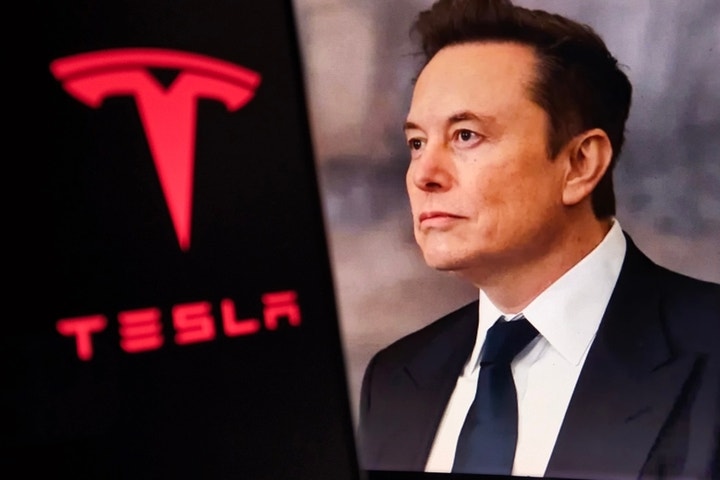
Despite Elon Musk’s ambitious promises, Tesla Inc. (NASDAQ:TSLA) is facing skepticism from investors due to its recent financial performance and the CEO’s unmet deadlines for autonomous driving.
What Happened: Musk’s futuristic pledges have historically been enough to divert investor attention from the company’s financials. However, this trend seems to be changing, reported CNBC.
Check out the current price of TSLA stock here.
Following a disappointing earnings report, Musk’s announcement of Tesla’s imminent transition to driverless electric vehicles and the expansion of its robotaxi service did not appease investors.
The stock slumped 5.49% over the past 5 days, centered on the company's pressing challenges, such as increasing competition from lower-cost EV makers, especially in China, and growing political backlash against Musk that has impacted Tesla's brand image in both the U.S. and Europe.
Analysts at Canaccord Genuity expressed their love for robotaxis and robots, but emphasized the need for growth in the present. "…we love robotaxis. And robots…But we love growth too, in the here and now. We need the P&L dynamics to turn."
Meanwhile, Goldman Sachs described Tesla’s robotaxi effort as “still small” with limited technical data points.
Despite Musk's bold promises of self-driving cars, humanoid robots, and cheaper EVs, Wall Street is keeping a close eye on Tesla's performance—particularly as it lags behind Alphabet's (NASDAQ:GOOGL) (NASDAQ:GOOG) Waymo in the U.S. and Baidu's (NASDAQ:BIDU) Apollo Go in China.
Why It Matters: Tesla’s second-quarter earnings were described as a “disaster” by Gary Black, managing director of Future Fund LLC. Black also questioned the hype surrounding Tesla’s robotaxi, expressing skepticism about its scalability due to the not fully autonomous nature of Tesla’s Full Self-Driving (FSD) technology.
Furthermore, Tesla’s engineering chief, Lars Moravy, signaled a potential shift in the company’s strategy, describing Tesla as being in a “big swing moment”. This could indicate a shift in focus towards more immediate, tangible projects such as the development of a smaller pickup truck, as opposed to the more futuristic ambitions of Musk.
This skepticism and potential shift in strategy highlight the challenges Tesla faces in convincing investors of the viability of its ambitious plans, amid slumping sales and rising competition.
Benzinga’s Edge Rankings place Tesla in the 58th percentile for quality and the 91.37th percentile for growth, reflecting mixed performance in both areas. Check the detailed report here.
READ MORE:
Image via Shutterstock
Disclaimer: This content was partially produced with the help of AI tools and was reviewed and published by Benzinga editors.







